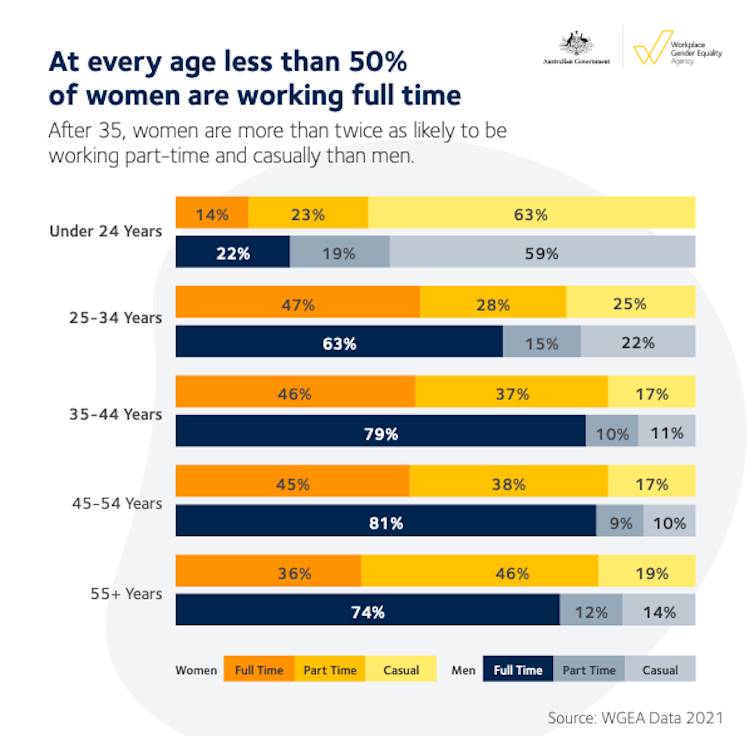
Most women are not working full-time during most of their working lives, which holds them back from management positions and accentuates the pay gap with men, according to data released on Monday.
Men on average out-earn women across all working age groups.
At every age group less than 50% of women were full time in 2021, according to the Wages and Ages: Mapping the Gender Pay Gap by Age data series. This has been issued by the Workplace Gender Equality Agency, a federal government body. The data comes from private sector employers with 100 or more employees.
The divergence in working patterns between men and women starts from age 35, when men are mainly working full time and women mainly working part time or casually. After 35 women are more than twice as likely to work part time and casually than men.


On average, companies with more part-time managers have more women at executive levels.
WGEA director Mary Wooldridge said if the trends in the data continued, millennial women now working would earn only 70% of men’s earnings by the time they were 45.
“Millennial women in the workforce 35 and under are currently reaching management at equal rates as men,” Wooldridge said. “We have a generation of Australian women who are highly educated, and over the last decade have been outnumbering men in higher education enrolments and completion.
"If organisations want to unlock the potential that these women can provide after the age of 35, there needs to be a shift in workplace structures surrounding them. Creative workplaces will reap the talent rewards today and in the future.”
 She said “too many employers are missing a huge talent pool by not encouraging and enabling women to work additional hours or in the managerial ranks”.
She highlighted the importance of gender-neutral parental leave. childcare subsidies and support, and flexible work policies.
“Leading employers are creating or redesigning roles to support part-time management and job-sharing structures,” Wooldridge said.
Authors: Michelle Grattan, Professorial Fellow, University of Canberra
She said “too many employers are missing a huge talent pool by not encouraging and enabling women to work additional hours or in the managerial ranks”.
She highlighted the importance of gender-neutral parental leave. childcare subsidies and support, and flexible work policies.
“Leading employers are creating or redesigning roles to support part-time management and job-sharing structures,” Wooldridge said.
Authors: Michelle Grattan, Professorial Fellow, University of CanberraRead more






